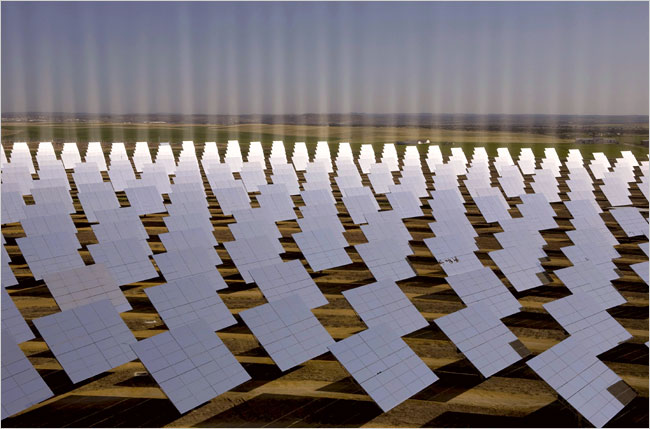It is fundamental for environmental protection that men learn how to use energy sparingly preferring energy produced through renewable sources not polluting and limitless available in nature and that can be regenerated over time.
On the other side, energy production trough fossil fuels, such as coal or oil, natural resources bound to run out over time, cause the emission in the atmosphere of massive quantities of gas increasing the greenhouse effect.
Renewable energy sources are all those resources not running out in times comparable with the human activities and generating clean energy.
Natural resources such as the sun, wind, water or underground are used to produce energy.
The use of those resources will not affect their future availability. They are very precious resources to generate energy reducing the environmental impact to the minimum. Nature is protected having in mind the respect for future generations and, moreover, energy production and distribution costs are limited.
SOLAR ENERGY
Solar energy has many advantages because it is inexhaustible, it is of immediate acquisition, it’s clean because we get it through the sun rays and it is cost-effective as the raw material has no cost. The quantity of solar energy reaching the earth is enormous, about ten thousand times higher than all the energy used by the whole human race in total. The solar energy can be used to generate electricity (photovoltaic) or to generate heat (thermal solar).
WIND ENERGY
Wind energy is the product of conversion of the wind’s kinetic energy into other forms of energy (electrical or mechanical). It is mainly converted into electric energy through Wind Farms. First among the renewable energy sources considering the ratio cost/production, it is an abundant source, widely spread, clean and it doesn’t produce gas related to the greenhouse effect.
HYDROELECTRIC ENERGY
Hydroelectric energy is a source of clean and renewable energy derived from the water power. A lake’s, river’s or artificial basin’s water stream, properly conveyed through the apposite mains, can convert its power into pressure and kinetic energy. This energy, later on, supplies power to a generator that converts it into electricity.
GEOTHERMAL ENERGY
Geothermal energy is the energy generated through geological heat sources and can be considered as a form of renewable energy, if evaluated on the short term. It is based on the production of natural heat by the Earth (geothermal energy), fed by the thermal energy released during processes of nuclear decay or radioactive elements such as the uranium, thorium, and potassium naturally present inside the Earth.
SEA ENERGY
Sea energy indicates the energy kept in various forms in the seas and oceans. It can be extracted using different technologies and, today, many systems have been experimented. Through particular techniques, several potentialities offered by the sea are exploited, such as wave motion, the motion of the air blowing above the waves, tides or the difference in temperature between the sea bottom and the surface.
BIOMASS ENERGY
From the organic waste, of animal and vegetable origin, it is possible to obtain a clean energy source of immediate use.
Nowadays, renewable sources provide only part of the global energy demand. Sources such as oil, coal or nuclear are still the most used ones, very dangerous and damaging to the climatic balance. It is then requested to implement the good practices aiming at energy saving and prefer the energy produced by alternative sources.



